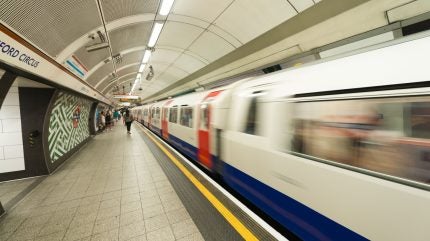
Transport for London (TfL) has contracted Thales and Nokia to renew its multi-services network (MSN) that supports the communications system on the London Underground.
The contract will ensure the MSN technology remains up to date and continues working at peak performance as part of the underlying infrastructure for the Connect communication ecosystem installed by Thales.

Discover B2B Marketing That Performs
Combine business intelligence and editorial excellence to reach engaged professionals across 36 leading media platforms.
Rebecca Bissell, director of information technology for TfL, said: “Delivering this comprehensive communications renewal will support the operational demands of our extensive Tube and rail network and ensure it operates at peak performance while reducing costs, journey disruptions, and ultimately providing the best service possible to our customers.”
The Connect system provides radio and CCTV technology for the network and was installed by Thales between 1999 and 2019 during a twenty-year Private Finance Initiative contract before the infrastructure became the property of TfL, who have since contracted Thales for its continued maintenance.
In 2021, the French IT company also finished an upgrade to the system which included the installation of new technology to replace parts that had been in place for two decades, with the MSN renewal likely to play a similar role.
Andy Bell, vice president of Thales Transport in the UK, said: “Renewing the multi-services network, in a way that minimises disruptions to services, is essential for maintaining a safe, reliable and efficient underground, without putting the burden on passengers.”

US Tariffs are shifting - will you react or anticipate?
Don’t let policy changes catch you off guard. Stay proactive with real-time data and expert analysis.
By GlobalDataThe renewal project is expected to take place between 2025 and 2027 with work only able to be carried out during the short period overnight when the underground network is closed to passengers.


